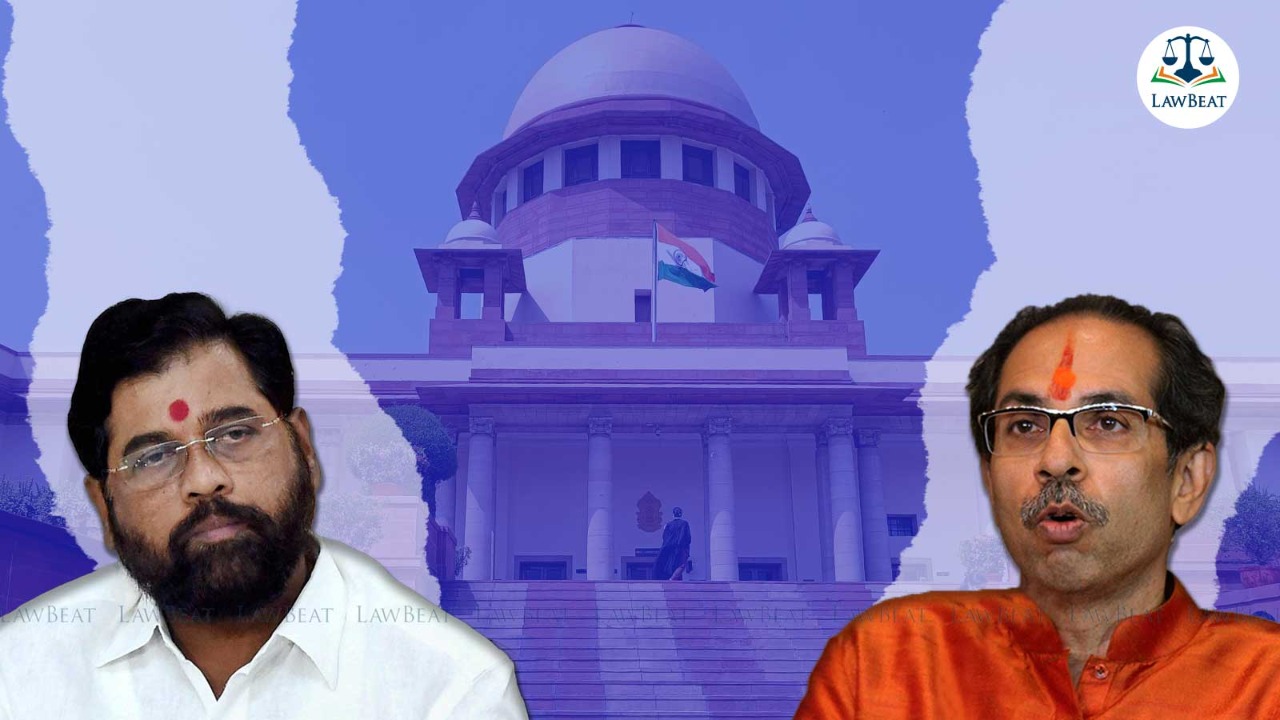BREAKING| Supreme Court holds Governor's decision asking Eknath Shinde to form government to be correct

"The Governor did not have any sufficient material to think that the Uddhav-led government seemed to have lost the confidence of the house and he should call for a floor test.", the Supreme Court has further held.
The Supreme Court today held that the Governor of Maharashtra was correct in calling upon Eknath Shinde, the current Chief Minister of Maharashtra, who represented BJP as the largest party at that moment, to form the government in the state.
A CJI Chandrachud led Constitution bench has further held that the Governor was not justified to call Uddhav Thackeray to prove that he had not lost the confidence of the house as the Governor did not have relevant material to rely on to do so.
"This court cannot ordinarily adjudicate upon disqualification petitions under the Tenth Schedule of the Constitution of India at the first instance. There are no extraordinary circumstances in the instant case that warrant the exercise of jurisdiction by this court to adjudicate the disqualification petitions. The Speaker must decide these petitions within a reasonable period", the bench also comprising Justices MR Shah, Krishna Murari, PS Narasimha and Hima Kohli has held.
The top court has further held that it is the political party and not the legislature party that appoints the whip. "To hold that it is the legislature party which appoints the whip, would mean to say that we severe the umbilical cord. This is not the system as evisaged by the Constitution and would render the 10th schedule as otiose..", Court has said.
In March, the constitution bench had reserved its judgment in the pleas revolving around the Maharashtra political which unfolded in the wake of Eknath Shinde's rebellion against the Maha Vikas Aghadi (MVA) government then led by Chief Minister Uddhav Thackeray raising important constitutional questions relating to interpretation of Schedule X of the Constitution pertaining to disqualification, as well as the powers of the Speaker and the Governor and the power of judicial review thereof.
In June last year, Shinde had moved the Supreme Court seeking a direction to the Deputy Speaker to not take any action in the disqualification petition moved by the Sena, which had in turn sought disqualification of Shinde and other MLAs.
A vacation bench of Justices Surya Kant and Pardiwala had extended the time granted by Deputy Speaker to Shinde and other MLAs to file their response to the disqualification petition.
Sunil Prabhu, the erstwhile Chief Whip of the Shiv Sena and a member of the Maharashtra Legislative Assembly, had moved the Supreme Court under Article 32 of the Constitution, challenging the Governor's communication to hold a floor test on June 30. The Supreme Court, however, refused to stay the floor test in Maharashtra on June 30.
After the hearing in Supreme Court on June 29, Bharat Gogawale, the Shiv Sena MLA from Mahad, filed an application seeking suspension of Shinde and other 'delinquent MLAs' from the membership of the Maharashtra Legislative Assembly as an interim measure, till a decision on their disqualification petitions. The vacation bench, however, refused the urgent listing of the plea.
Shinde took oath as the Chief Minister of Maharashtra on June 30. Subsequently, on July 3, a floor test was conducted and Shinde emerged successful. His camp moved a plea for disqualification of Shiv Sena MLAs, who did not vote for Shinde at the floor test.
On July 11, the SC orally asked the Maharashtra Legislative Assembly Speaker to not decide matters pertaining to the disqualification of the Maharashtra Legislative Assembly members till the petitions filed by the delinquent MLAs of Shiv Senachallenging the disqualification proceedings are pending before the apex court. The Uddhav camp has also challenged the decision of the Governor to appoint Shinde as the Chief Minister.
Case Title: Subhash Desai Vs Governor Maharashtra
